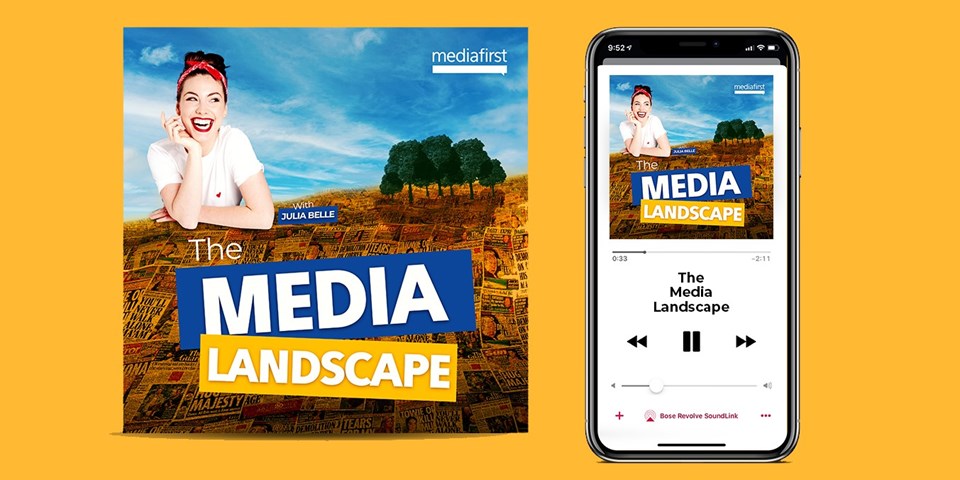MI6 bosses tend to avoid the spotlight.
So, when Richard Moore – known as ‘C’ – gave his first live broadcast interview, we knew it was one we could not miss.
The head of MI6 appeared on BBC Radio 4’s Today programme last week, ahead of giving his first major speech.
And there was much we liked - and that other spokespeople can learn - from his engaging performance, which you can catch here (at around 2:10) for as long as the broadcaster makes it available.
When I first heard Mr Moore would be appearing on the programme, I assumed it would be a guarded, cautious interview.
But I was wrong. And what impressed me was the way he combined serious messages with dashes of humour and anecdotes that helped show his human side – something we stress the importance of during our media training.
In an interview lasting the best part of 20 minutes – far longer than most broadcast interviews – we leant that Mr Moore “did some skulking” earlier in his career, that his pen omits nothing more sinister than green ink, and that he doesn’t have any nifty gadgets in his car.
“And I can assure you it is not, sadly, an Aston Martin," he told presenter Nick Robinson.
There was even a bit of a history lesson, with Mr Moore revealing that ‘C’ does not stand for chief, as is commonly believed. Instead, it stands for Cummings, after Mansfield Cummings, the first head of M16.
"No pens you want to show us while you're here?"
— BBC Radio 4 Today (@BBCr4today) November 30, 2021
Mi6 boss Richard Moore explains the tradition of "C" using green ink #r4today pic.twitter.com/ggDKNntGNa
The former secret agent took the James Bond comparisons in good heart.
"It is fiction, it is not reality. But the Bond franchise is a wonderful one,” he said.
“I had such fun watching the most recent film - no spoilers here. But it is brilliant. It doffs a cap to all the great James Bond traditions.
“We embrace James Bond, even though we know it is not true life.”
But it wasn’t all light-hearted stuff. Mr Moore had serious messages to get across. He spoke about the threats posed by Russia and China, which he said has the capability to “harvest data from around the world.”

Join Julia Belle and Media First for your weekly bitesize guide to the news stories you need to know about. Created for comms and media team professionals – and media spokespeople - The Media Landscape will take you through the stories dominating the news agenda and discuss why they matter.
He also hinted at closer working relationships with tech giants and argued Britain needed to be able to quickly vet companies.
“Given the challenges we have to the way we go about running and recruiting secret agents, if you look at some of the technology that is available to authoritarian regimes around so-called smart cities and surveillance, then clearly in order to stay ahead of that, we can’t do all of this in house.
“We can’t do in it our Q labs. The boffins behind the wire model doesn’t work for us anymore. So, we need to partner in a different way with industry.
“We need to be in there in Silicon Glen, in amongst the UK tech sector, having open conversations.
“You can’t wait for 18 months to security vet someone before you are prepared to open a conversation. People in the tech sector come into business, make their billion and go out of business in 18 months.
“And that’s about the time we might get around to security clearing them. So, clearly, we have to move that model.”
NOW: Richard Moore, @ChiefMI6, is live on @BBCr4today - first time "C" ("M" in the James Bond movies) has done a live interview
— Deborah Haynes (@haynesdeborah) November 30, 2021
This interview with Richard Moore, the Head of MI6, is absolutely fascinating. Can’t wait to hear what else he has to say later in the day - there’s a thin line between friend or foe with some key world players is my takeaway from this. “My enemy’s enemy is my…” etc #r4today
— Sara Thornton (@SaraThornton1) November 30, 2021
Delighted to listen to the Head of MI6, Richard Moore, on BBC Today programme. Such a difference from the usual people who fill the main interview slot. #C
— Graham Butland (@cllrgbutland) November 30, 2021
absolutely cracking interview Richard Moore - loved your wisdom, intelligence, humanity, plain-speaking and fabulous humour - keep keeping the UK safe sir!
— caroline black (@caroblack) November 30, 2021
What else can we learn from the interview?
Well, I was impressed with how Mr Moore handled a tricky opening question. “Why are you here”, was a reference to the secrecy of MI6. But it is also an example of the type of opening question we sometimes discuss during our media training courses that can catch spokespeople off-guard and sometimes cause them to give a spontaneous response they quickly regret.
Another part that impressed me was how he carefully corrected Mr Robinson when he confused agents and officers. There is sometimes a risk spokespeople can appear condescending when they correct a journalist, but Mr Moore handled the situation skilfully.
“We have to be careful about our terminology,” he said. “And sorry to be precise on this. But when we talk about agents, we talk about the brave men and women overseas who work with us. The officers in MI6 have to do a range of activity. They are still overseas. And they are still doing the work that can sometimes be dangerous and lonely, but of course, they are also working through data, targeting, and doing all that stuff back at home.”
There was also a sense of openness about past failures, particularly when admitting the assessment of the Taliban's progress in Afghanistan this summer was "clearly wrong". Here though, he should have avoided adding his own negative, which he did when he said: “I think it is really overblown to describe it in terms of intelligence failure.”
You don’t need to repeat or bring in a negative to rebut it.
But that is a relatively small error in what was an impressive interview. Not bad at all for someone who has rarely spoken to the media.
Perhaps, though, we shouldn’t be surprised. Mr Moore is active on Twitter and appears to feel a public face is now part of the role.
Thanks for having me @BBCNickRobinson and @MishalHusein. What an honour to be invited to @BBCR4Today this morning, to talk about my speech today. https://t.co/QbDEXIH6gC
— Richard Moore (@ChiefMI6) November 30, 2021
Here’s hoping he has a licence to give more media interviews.
Media First are media and communications training specialists with over 35 years of experience. We have a team of trainers, each with decades of experience working as journalists, presenters, communications coaches and media trainers.
Subscribe here to be among the first to receive our blog.



